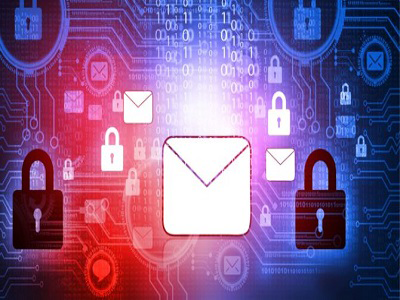How to Create the Most Secure Email Passwords
Although the Internet has been around for decades, many people are yet to learn a lesson about passwords. Very few people can create the most secure email passwords. A recent security study established that most email account owners use easy-to-remember and straightforward passwords such as “1234567.” It’s easy to remember such passwords, and even easier to hack them.
Secure email passwords are hard to guess. Often, they contain at least eight characters, lowercase and uppercase letters, numbers, and special characters. With such a password in place, it would be difficult for hackers to access your account and intercept or read your emails. If you want to create the most secure email passwords, the following tips come in handy.

Avoid Using Obvious Personal Information
In their attempt to access your email, the first thing that hackers do is to try creating passwords from your personal information. Therefore, you should avoid using easily-discoverable personal information such as a home address, pet names, or date of birth as your email password. These make your login credentials easier to crack.
Likewise, if you are required by your email service provider to choose a security question and answer when creating an account, select questions and answers that aren’t obvious. If you choose an obvious security question and answer, anyone, including those who browse your social media pages, can hack your account.
Avoid Reusing Passwords
Sometimes, cybercriminals undertake large-scale hacks, which entail intruding large email servers. Often, they end up leaking compromised email addresses as well as passwords online. In case your email account gets compromised during such hacks, and you used the same login credentials across multiple email accounts, hackers will have a field day accessing all your accounts.
Therefore, each of your email accounts should have unique passwords. By unique, it means every password is different. Do not be fooled by suggestions that you can create the most secure email passwords by having a base password, which is then tweaked to suit each of your accounts. This isn’t a wise idea because once a hacker gets hold of the base password, it will be easier for him/her to work out all the other passwords.
Consider Using a Passphrase
Even if your email service provider encrypts your login credentials, it’s easy for hackers to crack single words that can be found in the dictionary. Hackers keep getting better at what they do, and this is attested to by their use of “rainbow tables.” These are lists of hashes or encrypted versions of commonly used passwords. Rather than using one word as your password, consider using a phrase. Even so, avoid choosing phrases or quotes that everyone knows, because guessing them will be easy.
Likewise, avoid basing your paraphrases on personal information that can be easily worked out. If your pet’s name is Tina, and she’s five years old, a lousy paraphrase can be something like “Tina is five years old.” Instead, choose something random and easy to guess, such as “Red cats sleep a lot.” A paraphrase doesn’t need to make sense as far as grammar is concerned. It should be a group of words that are unique and difficult to guess.
Don’t Save Passwords on Your Browser
If you want to create the most secure email passwords, do not allow your browser to save the passwords when logging into your accounts. Most browsers offer to keep the passwords to make subsequent logins stress-free. It’s tempting to allow this since remembering numerous passwords is cumbersome. However, it leaves you exposed to all forms of cyber risks.
When browsers store your email passwords, malicious software can sneak onto your devices and steal your email passwords. This information can be passed on to hackers, thus putting your email accounts at stake. Numerous mass breaches resulting from browsers storing email passwords have been reported. Therefore, this isn’t the way to go if you want to create the most secure email login credentials.
Use a password Manager
Many people use the same login credentials across different email accounts to make logins easier. Often, they don’t know how much this exposes them to breaches. If you don’t want to memorize long and complex passwords for all your email accounts, consider using a password manager.
This is a program that looks after all your passwords. It can also help you to create the most secure email passwords. Likewise, the program can fill in passwords on sites on your behalf. This goes a long way in guaranteeing the security of your email accounts and the data therein.
Creating a strong email password is a step in the right direction as far as protecting your data is concerned. However, there’s still much more that you can do to safeguard your email account further. Contact NuEduSEC today to learn more about cloud-based enterprise solutions for email security.